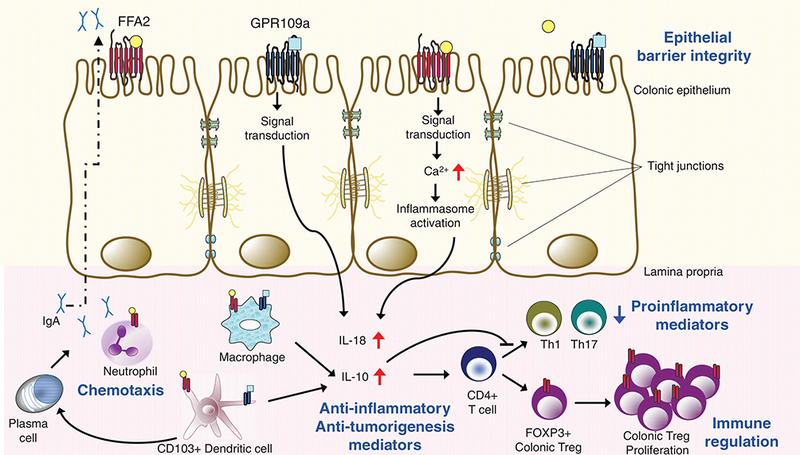Figure 5.

Short chain fatty acid receptors in gut immune homeostasis. Short chain fatty acids produced by fermentative activity of gut microbiota bind and activate receptors on intestinal epithelial cells and immune cells like macrophages, neutrophils, and dendritic cells. Production of cytoprotective IL-18 (from FFA2/GPR109a-dependent activation of inflammasome), anti-inflammatory IgA (from FFA2-dependent activation of B cells), anti-inflammatory IL-10 (from FFA2 activation and GPR109a-dependent activation of macrophages and dendritic cells), and (FFA2-and GPR109a-dependent) differentiation and proliferation of Tregs protect against conditions leading to colitis and colitis associated cancer. Taken together, these processes influence epithelial barrier integrity, adequate neutrophil migration, balanced proinflammatory (Th1 and Th17), and immunosuppressive (Treg) responses under conditions of inflammatory insult. CD, cluster of differentiation; IgA, immunoglobulin A; Th, T helper cells; Treg, regulatory T cells; short chain fatty acids are represented byo, □; FFA2 and GPR109a, respectively, on immune cells are represented by I, I; red upward arrow signifies increase; blue downward arrow signifies decrease (92, 111, 116, 117, 176, 177, 181, 190, 191, 220).
